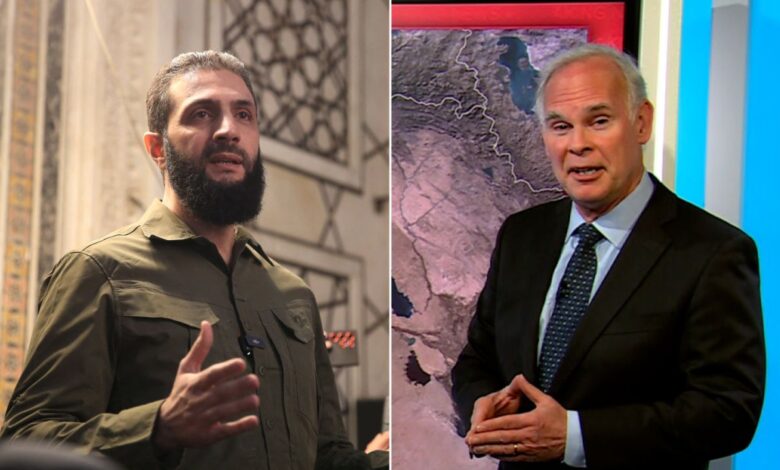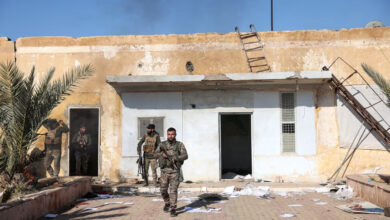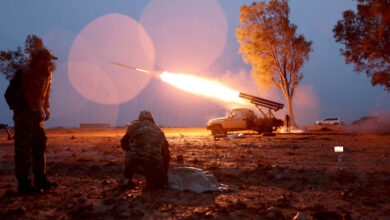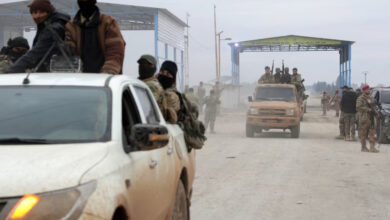
It’s a journey along which he has had plenty of time to plan where and how he would mark his arrival, and to fine-tune his narrative – his message for those who put him in power, those who might bring him down, and others who can keep him in power.
It is no surprise that the Islamist rebel chose Damascus’s venerated Umayyad Mosque – not a TV studio, nor newly absented presidential palace, but a place of towering religious significance, which at 1,300 years old is one of the world’s most ancient mosques – to deliver that message.
“This victory, my brothers, is a victory for the entire Islamic nation,” he told his tiny entourage, who stumbled behind him against the backdrop of the mosque’s distinctive black and white stone splendor.
It was a message to all those who had taken him to power, and propelled his Hayat Tahrir al-Sham (HTS) fighters at startling speed across Syria to oust President Bashir al-Assad.
It was a message too to the newly liberated Syrians. “This victory, my brothers, by the grace of God Almighty (follows) the sacrifices of the martyrs, the widows, and the orphans. This victory, my brothers, has come through the suffering of those who endured imprisonment,” he said.
In a country where the God you chose, and how you pray, can define your class, limit your aspirations and pit you against your neighbor, Jolani sent a very clear signal in the Umayyad Mosque. He is a Sunni Muslim, part of Syria’s majority. Assad was an Alawite. There are Christians, Druze, Shia Muslims, Ismailis and more.
Yet the words he chose appeared intended to break those old bounds. “This new triumph, my brothers, marks a new chapter in the history of the region, a history fraught with dangers (that left) Syria as a playground for Iranian ambitions, spreading sectarianism, stirring corruption,” he said.

Singling Iran out appears to be a message to Tehran’s theocracy – that their meddling is over, their easy land access to their mega proxy Hezbollah in Lebanon is over, their support for Syrian Hezbollah is over, and gone too is the home they once had for Iran’s weapons stockpiles.
But it is a message Jolani will know is being heard in Tel Aviv and Washington, where he is considered to be a member of a proscribed terrorist organization with a $10 million dollar bounty on his head. A message that says to them, ‘your interests are understood in the new Syria,’ and an understanding on his part that these are the powers capable of bringing him down.
Jolani has been at pains on his race to Damascus to make sure US President Joe Biden and even President-elect Donald Trump know his intent. It is no coincidence that he picked a US TV network, CNN, and not an Arab one, for a key interview in the days before he ousted Assad, claiming he had parted company from other jihadists because of their brutal tactics.
Speaking a few hours later, Biden said he had heard Jolani “saying the right things,” but insisted the rebel leader be judged by his actions.
Jolani’s message was also tuned for regional powers he’ll need to keep onside, promising to clean shop. “Syria is being purified,” he said, referring to the country’s regional reputation as a narco-state, saying Assad’s Syria had “become the world’s leading source of Captagon,” an amphetamine-type drug, and criminality through the region.
Jolani’s mosque speech was about arrival and survival. It’s his actions, though, that will secure the latter.




